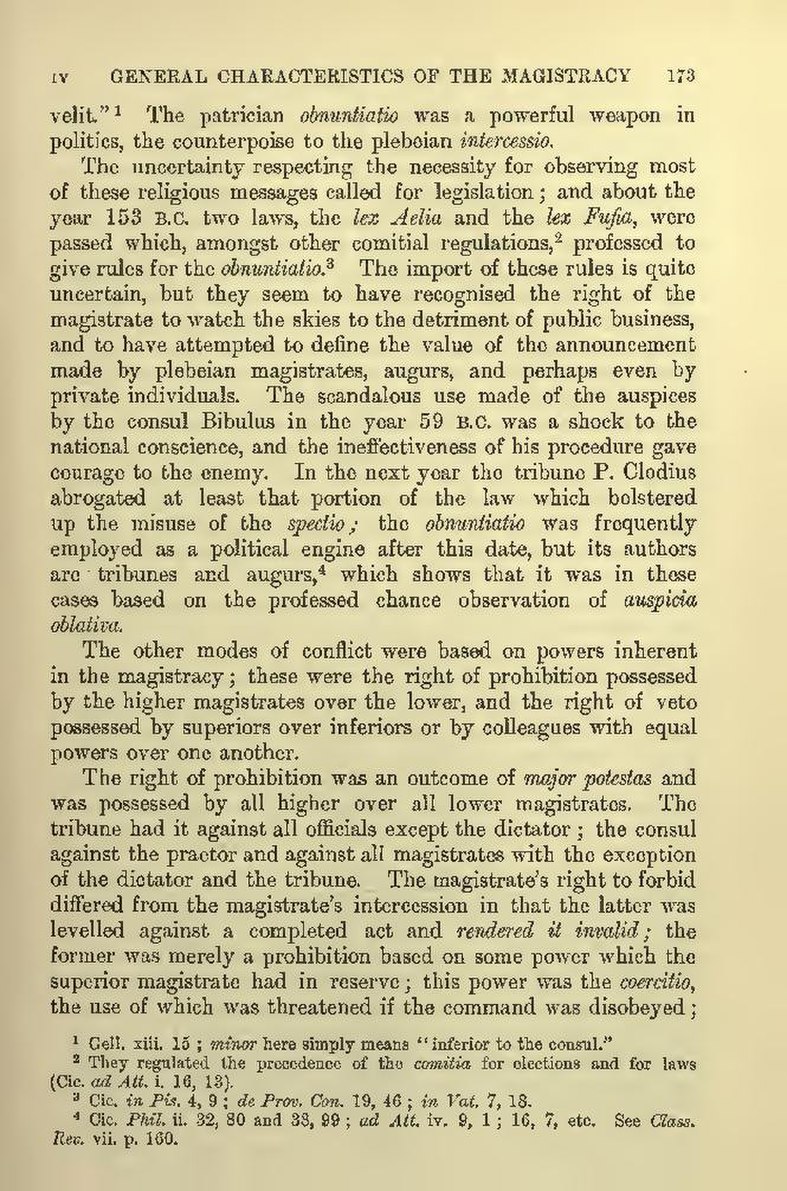velit."[1] The patrician obnuntiatio was a powerful weapon in politics, the counterpoise to the plebeian intercessio.
The uncertainty respecting the necessity for observing most of these religious messages called for legislation; and about the year 153 B.C. two laws, the lex Aelia and the lex Fufia, were passed which, amongst other comitial regulations,[2] professed to give rules for the obnuntiatio.[3] The import of these rules is quite uncertain, but they seem to have recognised the right of the magistrate to watch the skies to the detriment of public business, and to have attempted to define the value of the announcement made by plebeian magistrates, augurs, and perhaps even by private individuals. The scandalous use made of the auspices by the consul Bibulus in the year 59 B.C. was a shock to the national conscience, and the ineffectiveness of his procedure gave courage to the enemy. In the next year the tribune P. Clodius abrogated at least that portion of the law which bolstered up the misuse of the spectio; the obnuntiatio was frequently employed as a political engine after this date, but its authors are tribunes and augurs,[4] which shows that it was in these cases based on the professed chance observation of auspicia oblativa.
The other modes of conflict were based on powers inherent in the magistracy; these were the right of prohibition possessed by the higher magistrates over the lower, and the right of veto possessed by superiors over inferiors or by colleagues with equal powers over one another.
The right of prohibition was an outcome of major potestas and was possessed by all higher over all lower magistrates. The tribune had it against all officials except the dictator; the consul against the praetor and against all magistrates with the exception of the dictator and the tribune. The magistrate's right to forbid differed from the magistrate's intercession in that the latter was levelled against a completed act and rendered it invalid; the former was merely a prohibition based on some power which the superior magistrate had in reserve; this power was the coercitio, the use of which was threatened if the command was disobeyed;
- ↑ Gell. xiii. 15; minor here simply means "inferior to the consul."
- ↑ They regulated the precedence of the comitia for elections and for laws (Cic. ad Att. i. 16, 13).
- ↑ Cic. in Pis. 4, 9; de Prov. Con. 19, 46; in Vat. 7, 18.
- ↑ Cic. Phil. ii. 32, 80 and 38, 99; ad Att. iv. 9, 1; 16, 7, etc. See Class. Rev. vii. p. 160.
